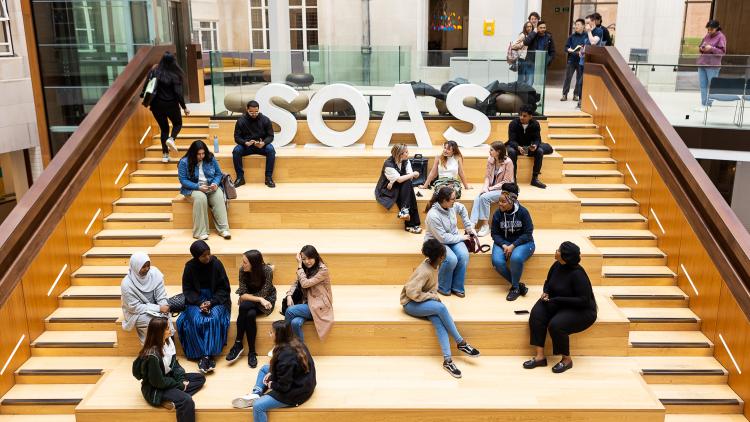SOAS-led University Network Organises Workshop on Macro-Climate Modelling


The RAMP University Network recently held a three-day online workshop on “Macro-Climate Modelling with DIGNAD” from 29-31 July 2024.
Convened by Senior Fellow Dr. Dieter Wang, the workshop was a response to the wide interest in macroeconomic modelling, which members of the Network expressed during a workshop held in Accra earlier this year. The goal was to strengthen the technical skills in general but also to gain deeper knowledge about the DIGNAD model specifically. The “Debt-Investment-Growth and Natural Disasters” model was developed by the International Monetary Fund (IMF) and has been used in many countries to inform climate-related policy decisions. The sessions were taught by leading experts in the field and the workshop saw nearly 80 registrations, consisting mostly of university faculty but also from ministries.
On the first day, Prof. Johannes Pfeifer from the University of the Bundeswehr Munich and a member of the Dynare core team, delivered an introduction to dynamic (stochastic) general equilibrium modelling. Participants learned about the theoretical underpinnings of macroeconomic models and discussed various solution methods in MATLAB and Dynare. Topics included the structural model equations, steady states, and how systems dynamically respond to exogenous shocks.
The second day featured Dr. Azar Sultanov from the IMF’s Research Department, who introduced the DIGNAD model and the associated toolkit. Dr. Sultanov is one of the main developers and authors behind DIGNAD and provided an overview of the toolkit, described its MATLAB and Excel interfaces, and showcased its applications through various country use cases, including the IMF's work under the Resilience and Sustainability Trust.
On the final day, Dr. Vimal Thakoor from the IMF Institute for Capacity Development and the Africa Training Institute conducted a technical deep dive. Attendees were able to run the model themselves in hands-on training and learned how to calibrate the DIGNAD model to different countries. In particular, Dr. Thakoor explained how to leverage some of the main features of DIGNAD, such as simulating the impact and recovery from natural disasters, how they affect a country’s debt profile, and why donor financing plays a crucial role.
Building on the positive feedback and strong interest from across the University Network, the RAMP University Network Secretariat is planning follow-up activities to strengthen macro modelling capacities.
Header Image credit: NOAA via Unsplash.
About the University Network and RAMP
The University Network for Strengthening Macrofinancial Resilience to Climate and Environmental Change was established to promote multi-disciplinary academic teaching and research in areas important for strengthening macrofinancial resilience to climate change. The Network consists of global universities that seek to build capacities to conduct relevant high-quality teaching and research and acts as a strategic and knowledge partner of major international organisations working in this field.
The University Network is a key part of the Resilience Adaptation Mainstreaming Program (RAMP). The objective of RAMP is to accelerate climate adaptation in developing countries by building capacity in ministries of finance, planning and economics to understand, plan for, and finance climate adaptation actions. RAMP is supported by a secretariat hosted by the World Resources Institute, working in close partnership with the Coalition of Finance Ministers for Climate Action, the Bretton Woods institutions, UNDP, regional development banks, and other stakeholders.



